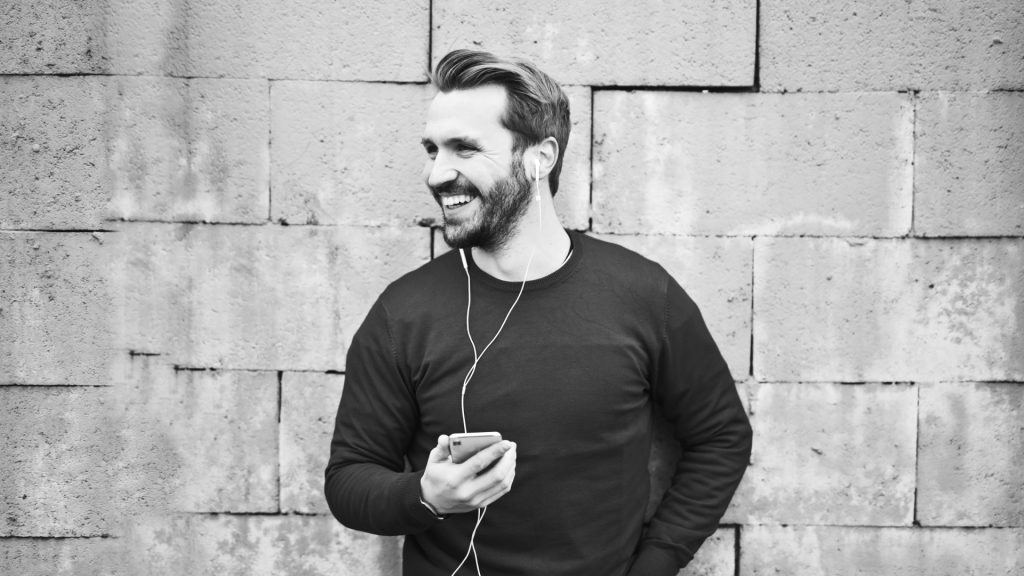“From caring comes courage.”
– Lao Tzu
We often think that acting with courage will make us happy. But what if the reverse was also true? That by maintaining a positive outlook, we are encouraging ourselves to act with courage?
Many people mistakenly assume that courage is a virtue that one is born with, or not. But while some people may be more predisposed to taking risks, everyone has the ability to cultivate and hone their own sense of courage.
Courage is like a muscle: we can train it slowly over time through small daily actions in order to wield it with confidence when most needed. Just because some people may be more naturally inclined to taking courageous actions, we all have the ability to build up our courage muscles over time with the right training and practice.
Build your courage by recognizing your strengths
According to multiple scientific studies, we perceive our weaknesses to be more malleable than our strengths. In other words, while we can change the parts of ourselves that we think are weak, the strong parts of ourselves are here to stay.
To increase our own sense of self-confidence, it’s beneficial to identify and name our strong points: the parts of ourselves that we feel are more permanent. By identifying and working with our strengths, we are developing our resilience. By focusing on the positive aspects of ourselves, we are also increasing our sense of happiness.
Knowing what we’re good at not only boosts our confidence, but helps us act with courage. When we feel confident that we can take on a challenge, we’re more likely to take risks and approach it with courage.
It’s natural for us to focus on our weakness, the parts of ourselves that we want to focus on and work on. But by doing this, we are subconsciously demotivating ourselves, and making it less likely that we will act with courage.
Imagine going to the gym. Thinking about the exercises you enjoy doing (most likely your strengths) gives you motivation, while focusing on the exercises you don’t like doing (weaknesses) make it less likely that you’ll go to the gym in the first place.
The same is true for courage. Thinking about the positive aspects of ourselves gives us the motivation to take chances and the confidence to take courageous actions.
“A lot of times people look at the negative side of what they feel they can’t do. I always look on the positive side of what I can do.”
– Chuck Norris
Celebrate your courageous actions
Every time we act with courage, it’s important to take note and acknowledge ourselves. According to authors Teresa Amabile and Steven Kramer, who co-wrote The Progress Principle, celebrating small wins encourages us to continue to move forward with confidence.
Try to take note of every time you confront a fear and act with courage, especially if courageous actions are something new for you. By acknowledging your achievement and encouraging yourself, you are ensuring that you will continue to act with courage in the future.
It can be beneficial to keep a journal and reflect on your accomplishments every day. If you already keep a journal, try to identify and acknowledge the times that you act with courage, rather than focus on lost opportunities.
NEW! Put the principles from this article into practice with the free courage-boosting MaArtial app on the App Store for iOs and Play Store for Android.
By celebrating the courageous actions we take instead of feeling regret for those we didn’t, we are keeping ourselves from engaging with negative thoughts, and ensuring that we maintain a positive outlook for moving forward.
The benefits of being positive
Maintaining a healthy outlook has a number of great benefits in our day-to-day lives. Being positive helps us be more optimistic, more appreciative, and more understanding towards others. Having a positive outlook can also help us better deal with failure or disappointment.
But maintaining a healthy perspective also motivates us to take courageous actions. In turn, these actions increase our sense of happiness, and encourage a healthy cycle of positivity and courage throughout our day-to-day lives.












